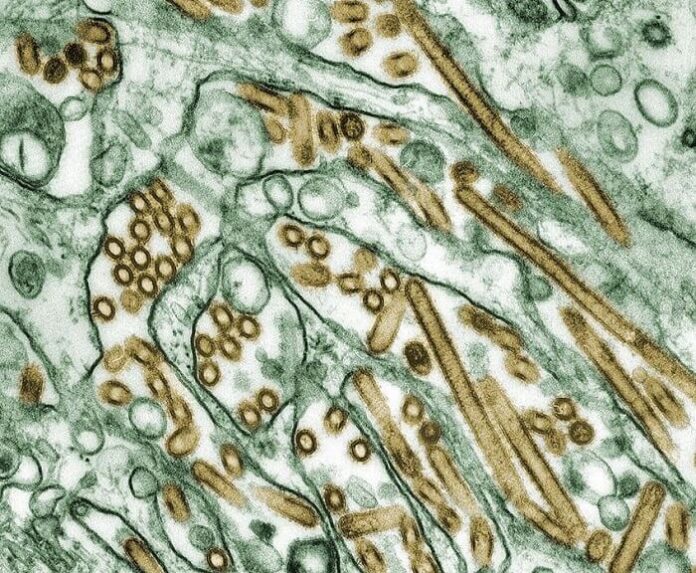

Louisiana health officials have reported the first human death in the United States linked to bird flu, confirming that the patient, who had underlying medical conditions, succumbed to the H5N1 virus. Authorities emphasized that the general risk to the public remains “low.”
The patient, over 65 years old, had been hospitalized since mid-December. This case was previously identified as the nation’s first severe human infection with H5N1, according to the Centers for Disease Control and Prevention (CDC).
“While the current public health risk remains low, individuals working with birds, poultry, or cattle, or those with recreational exposure to these animals, are at higher risk,” the Louisiana Department of Health stated.
The patient contracted H5N1 after exposure to a mix of wild birds and a non-commercial backyard flock. Officials found no evidence of person-to-person transmission or additional cases in the state.
Rising Concerns Over H5N1 Spread
The death comes amid increased federal efforts to combat bird flu. Just days earlier, the Biden administration allocated $306 million to bolster H5N1 surveillance and research amid criticism of its response to the ongoing outbreaks.
Scientists remain concerned about the virus’s potential to mutate into a more transmissible form, which could pose a global pandemic threat. Since January 2024, the CDC has reported 66 human cases of bird flu in the United States.
“This virus is highly lethal, far more so than many others we worry about,” said Jennifer Nuzzo, an epidemiology professor at Brown University. “The unchecked spread on farms and elsewhere has prompted calls for stronger government action.”
Genetic Mutation Detected
As reported by medicalxpress, the CDC revealed that genetic sequencing of the Louisiana patient’s H5N1 virus showed differences from the strain affecting dairy herds nationwide. A minor genetic modification in the virus suggested it could adapt to the human respiratory system, though researchers caution that mutations alone do not guarantee increased transmissibility.
H5N1, first identified in 1996, has seen an alarming rise in outbreaks since 2020, affecting a wide range of bird flocks and mammal species. Globally, the World Health Organization has recorded over 950 human cases in 24 countries since 2003, primarily in China and Vietnam.
While the Louisiana death is tragic, it was “not unexpected,” the CDC stated, citing the virus’s known ability to cause severe illness. Experts stress the urgency of preventing further infections.
“This is a dangerous virus no one wants to contract,” Nuzzo warned, calling for stronger measures to contain its spread.






















